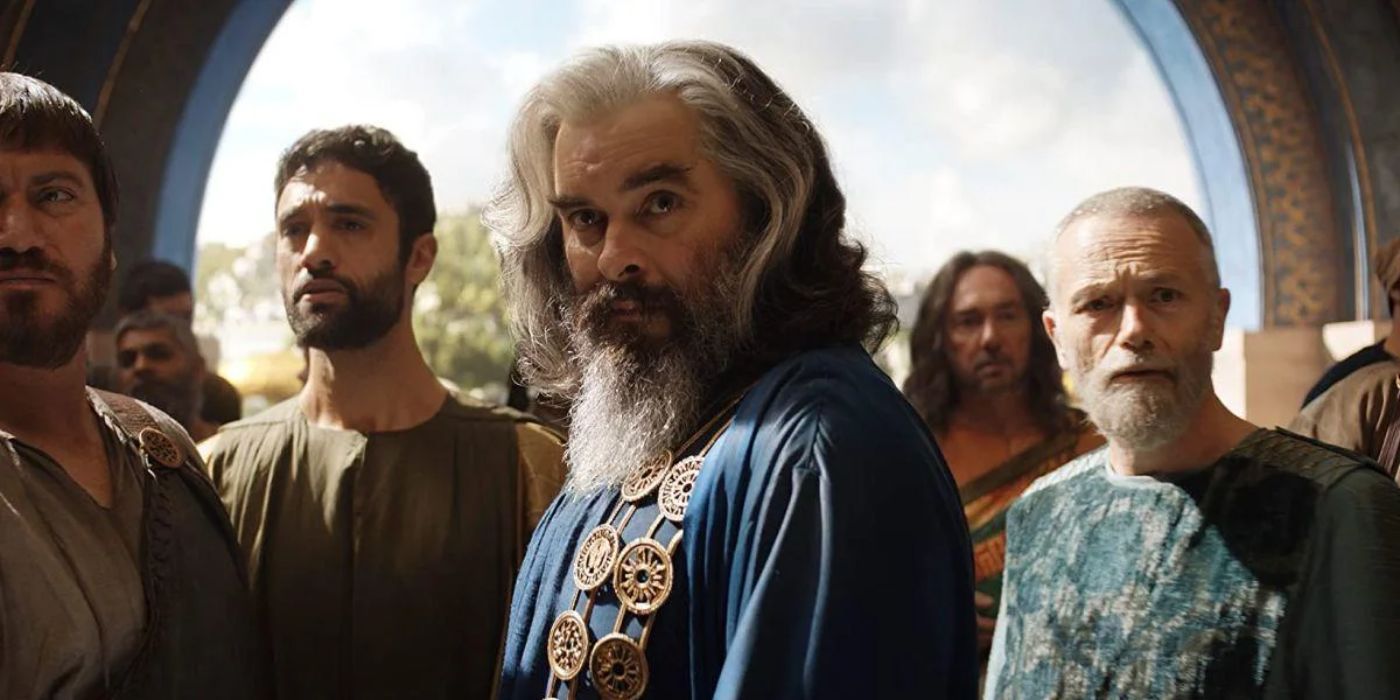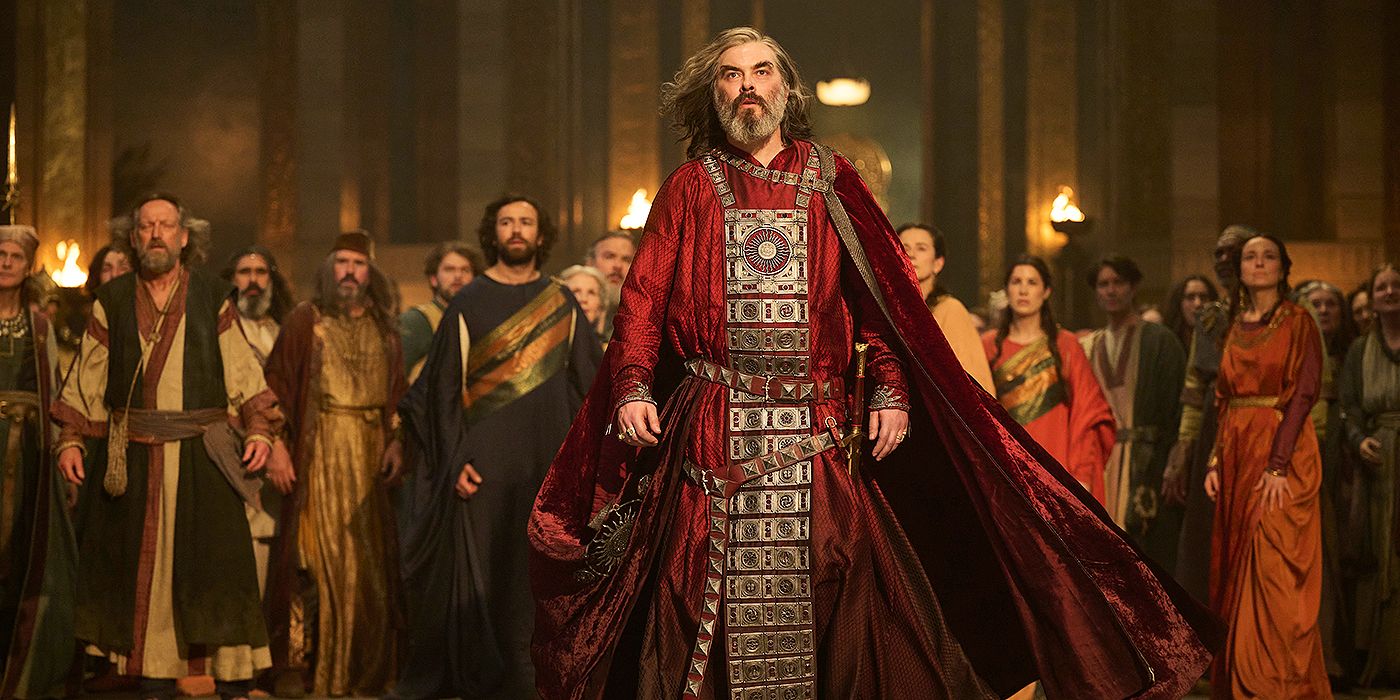
Editor’s Note: The following contains spoilers from The Lord of the Rings: The Rings of Power Season 2 finale and also the resulting tragedy of Númenor.
It’s kind of wild how quickly Númenor has begun to decay this season in The Lord of the Rings: The Rings of Power. In Season 1, we knew that Númenor as a society was beginning to shift and crumble, but it wasn’t until Season 2 that we saw the full effects. Between the power struggle between Queen Tar-Míriel (Cynthia Addai-Robinson) and Ar-Pharazôn (Trystan Gravelle) to Elendil’s (Lloyd Owen) struggle to maintain the Faithful in the wake of persecution, there’s a lot going on here that will no doubt be a primary focus in the (hopefully) upcoming third season. But given that J.R.R. Tolkien already told us how Númenor’s story turns out, we’re starting to think that this island kingdom might actually deserve it.
The Downfall of Númenor is Going to Be Brutal, and Honestly, They Deserve It

According to Tolkien’s legendarium, Númenor was given to Men by the Valar as a reward for their courage during the First Age. It was a gift that many were grateful for, and so the Valar were honored, the Elves were welcomed, and Eru Ilúvatar was worshiped. Over time, these religious convictions became old-fashioned and outdated, and those who remained (called the Faithful) were eventually persecuted, especially once Sauron began influencing policy. Well, Rings of Power shows a Númenor relatively untouched by Sauron that is already beginning to crumble from the inside. As Pharazôn grasps for power, believing himself to be divinely ordained after “The Eagle and the Sceptre,” he pushes his fellow countrymen into submission, casting out any deemed loyal to Míriel and her “outdated” beliefs. The bigotry is real with this one.
The worst offender, though, is Kemen (Leon Wadham), Pharazôn’s snake of a son who is both a coward and a fool. Kemen represents the absolute worst of Númenor. He uses his political power as a boot to lay heavier burdens on his fellow citizens and uses his silver tongue to coerce others into falling prey to his schemes. Now that he’s arrived in Middle-earth, and is officially in charge of the colony outpost Pelargir, things are likely about to get worse. Númenor has fallen into the trap of forsaking tradition, erasing religion, and forcing their own powerful hand on those who they should otherwise be protecting. Tolkien’s The Silmarillion tells a similar story, where Númenor is on a downward trajectory for decades before they eventually tempt fate, trust Sauron, and try to invade Valinor so that they may receive eternal life. Things don’t go well for them, though, and they’re soon wiped from the face of the map.
Númenor Has To Die for Middle-earth To Be Saved


The thing is, though, in order for Sauron to be defeated, Númenor has to first die. While at its peak, Númenor may have been invaluable in the war against Sauron. But the more the island kingdom succumbs to its poor leaders and forsakes those who would have their best interests at heart, the more of an ally it might become to the Dark Lord. We know from Tolkien’s writings that Sauron eventually gets a foothold in Númenor, and his guidance leads them to battle against the Valar. Well, as a result, Eru Ilúvatar destroys Númenor, reshapes the world from a flat-earth to a globe (really), and strips Sauron of much of his power. Of course, there’s also the fact that Elendil and his sons escape Númenor’s destruction due to their faithfulness to the Valar, and arrive on Middle-earth to establish dueling kingdoms that would then aid the Elves in the Last Alliance against the Dark Lord.
Strangely enough, without Númenor’s fall, Sauron might win, and not just in the Second Age either. Eventually, Elendil’s descendant, Aragorn, would be vital to the final defeat of Sauron, which ties directly back to this period in Tolkien’s mythology. So, as Númenor plunges itself further into depravity throughout Rings of Power, we can rest assured knowing that those in charge will get their comeuppance. Evil will be thwarted, good will prevail. As the Season 2 finale, “Shadow and Flame,” pointed out, even the smallest amount of light can drive the darkness back. If Númenor won’t see the light, it will bow before it, and that’s an ending we’re all excited to see.
The Lord of the Rings: The Rings of Power is available for streaming on Prime Video.


